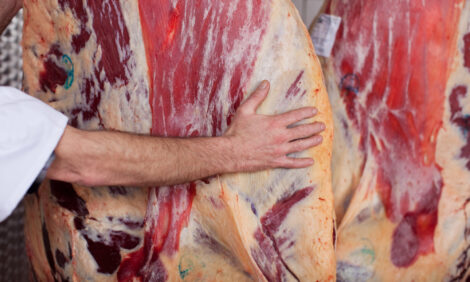



Brazil’s beef exports expected to fall amid reduced Chinese demand due to coronavirus
Market outlook predicts a fall in Chinese beef imports as the coronavirus outbreak effects global movement and trade.According to reporting from Reuters and analysis from Rabobank, China’s beef imports will fall in the first half of 2020 due to the fallout from the covid-19 outbreak. The outbreak has complicated the circulation of people and trade globally, causing revisions to Chinese demand estimations.
The situation may rein in Brazil’s meat export boom, since domestic food processors were among the biggest beneficiaries of additional Chinese food import demands after African swine fever disrupted pork and other local meat suppliers since summer 2018.
Rabobank said China’s high inventory of frozen beef stored in local markets ahead of the country’s Lunar New Year holiday was not used in January due to the coronavirus outbreak, which caused restaurant closures in affected areas.
Some restaurants count remain closed until March since people are avoiding eating out, Rabobank said.
"Quick service restaurants may be impacted the least, while hotpot and full-service restaurants will see sales decline markedly in the first quarter," the report said.
Citing uncertainties around to what degree coronavirus can be contained in the first quarter, Rabobank says it’s possible that the food service and tourism industries would remain disrupted through April or May.
"This lower sales volume means beef demand will be weaker than normal years in the first half," the bank said.
Brazil's total beef exports hit a record $7.5 billion in 2019 driven by strong demand from China, which accounted 26.6 percent of the volume exported by domestic beef packers, according to data compiled by meat association Abrafrigo.
If sales to Hong Kong are included, the combined volume rises to 45 percent.
Some of Brazil's main beef exporters include Minerva, JBS and Marfrig.
Still, after a 2019 marked by record exports and prices, the Brazilian beef industry "is experiencing a moment of rebalancing of supply and demand," Rabobank said.
Brazil registered unprecedented price levels late last year due to strong beef exports, making the domestic market retract when the price increases reached the local consumer. Meanwhile the rainy season generated pasture growth, which lowers production costs but limits the supply of animals sent for slaughter, the bank noted.
"With [Brazil's] domestic consumption still considered weak and China reducing purchases due to the coronavirus, abattoirs are unwilling to pay higher prices to attract increased volumes," Rabobank said.
Although still 27 percent higher than in January 2019, Brazilian cattle prices in January dropped 9.8 percent from 211.97 reais per 15 kilograms in December, Rabobank data showed.


